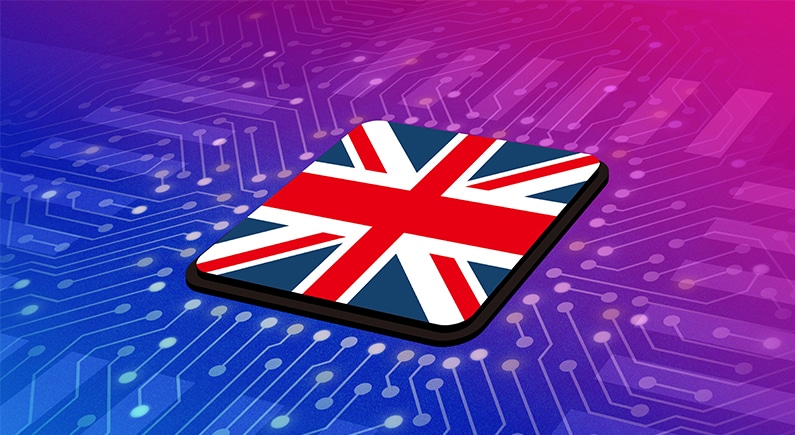BT to tap into UK gov’s £2.5bn support fund towards Quantum tech

BT is among the many organisations that are looking to tap into a £2.5 billion government fund aimed at supporting quantum technologies in industry and academia. The telecommunications giant has affirmed its commitment to the objectives outlined in the National Quantum Strategy in a recent blog post.
BT leads the charge towards a quantum-enabled UK economy
The UK’s leading telecommunications group, BT, has shared its belief that quantum computing will result in significant and far-reaching changes to both the telecoms industry and society at large. The technology is widely regarded as a game-changer for computational power and is gaining increasing attention from organisations around the world, including BT.

In a blog post titled “Shaping the UK’s Quantum Enabled Economy,” BT provided details on its activities in the field, coinciding with World Quantum Day. The post outlines BT’s initiatives in the quantum space, including a recent partnership with Toshiba to launch a commercial trial of a quantum-secured metro network. BT is also defining requirements for a quantum-enabled data centre, investigating how quantum computers can improve telecoms functions, such as circuit switching, packet routing, signal processing, and antenna beam steering. Additionally, BT is exploring how quantum timing could enhance timing and synchronisation technology for faster networks.
The post refers to a £2.5 billion government fund aimed at supporting quantum technologies in industry and academia, and emphasises BT’s alignment with goals outlined in the National Quantum Strategy.
Tim Whitley, Managing Director, Research and Network Strategy at BT Group had the following to say in the blog post:
Quantum technologies promise transformational opportunities across computing, communications, sensing and timing. If we look at quantum computing, it has the potential to solve particular classes of computational problems with an exponential advantage over the fastest supercomputer. This has far-reaching implications for the ability to solve challenges that are currently considered intractable due to their inherent complexity, offering the possibility of major breakthroughs in science, industry, business and everyday life in a multitude of ways. Sectors such as energy, pharmaceutical, finance, telecoms, construction, and civil engineering could be transformed.
“Here at BT Group, our ambition is to be the world’s most trusted connector of people, devices, and machines. To achieve that, we must keep defending our customers’ data and services while exploring new technology opportunities. Quantum technology is therefore significant to our business,” Whitley continued to note. “And, as the UK’s leading provider of fixed and mobile telecommunications and related secure digital products, solutions and services, BT Group is critical to the Government’s vision for a ‘quantum enabled economy’.”
According to Whitley, genuine innovation arises when industry and academia collaborate, and research outcomes are eventually transformed into products and services that benefit customers. He added that BT supports the UK government’s investment in quantum technologies to help make them commercially viable.
What’s up with Quantum? The double-edged sword explained
Besides adorning ChatGPT’s front page as a recommended use-case example, Quantum computing has been a theoretical concept for years, but it’s finally becoming reliable enough to be used in some industrial or commercial scenarios, and the implications of this becoming more widespread are potentially huge.

It is a type of computing that uses quantum mechanics to perform calculations. Traditional computers use bits that are either 0 or 1, but in quantum computing, the basic unit of information is called a qubit, which can be in a superposition of states. This means that a qubit can be 0 and 1 at the same time, and can also be entangled with other qubits.
This property of qubits allows quantum computers to perform certain calculations much faster than traditional computers. For example, quantum computers can factor large numbers exponentially faster than classical computers, which is important for cryptography and security.
The potential impact of this technology becoming more widespread is enormous, both in terms of economic opportunities and the threat of devastating cyberattacks.
BT has positioned itself at the forefront of the UK’s quantum ecosystem. While some may view this as self-serving, it is crucial for companies like BT to take quantum computing seriously. The stakes are simply too high to risk being left behind in the global development of this game-changing technology.
For the telecoms industry, quantum computing presents a double-edged sword. While it offers new opportunities for innovation and growth, it also poses a significant threat in the form of quantum-powered cyberattacks. These attacks could potentially bypass even the most sophisticated security measures and wreak havoc on networks.
As a result, many in the telecoms industry are focusing on developing quantum-based defences. While it is impossible to stop technological progress, it is important to mitigate the risks and develop measures to counter these threats. Telecoms companies are taking this responsibility seriously and are advocating for a balanced approach that considers both the potential benefits and the risks.
This is in contrast to the development of generative AI, which has not received the same level of scrutiny or caution from companies and governments. While these technologies offer tremendous potential for innovation, they also come with significant risks, such as the rapid spread of deepfakes and misinformation.
While there are signs that some tech leaders are starting to take these risks seriously, more needs to be done to ensure that AI is developed responsibly and with proper safeguards in place.
In the case of quantum computing, the focus on developing the technology alongside measures to mitigate potential risks is a responsible and sensible approach. While there is still much work to be done, telecoms and tech companies are putting their resources and efforts into making sure that the benefits of this technology are realised while minimising the risks.
Get ahead of the game with AIBC News.
Providing comprehensive analysis and coverage of the latest developments and trends, AIBC News is the ultimate information hub for anyone looking to stay up-to-date and make well-informed decisions in the world of cryptocurrency. Visit our news website to access our daily market analysis, expert opinions, and real-time news updates on all things related to Blockchain, Cryptocurrency, AI, and other emerging technologies.






